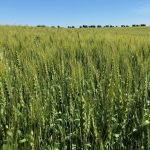You only sell the farm once. Obviously, you don’t get to this point lightly. So, what is your first step? Do you sell the whole farm, or go piecemeal? How can you be sure you get the market price? Will you get nailed for taxes?
You’ve spent a lifetime — and there’s a good chance your family has spent generations — building value in your farm. Can you ensure the planning and sales process reflects your dedication? Or is that a pipedream? Is it only about dollars, commissions and fees?
Where do you start?
Read Also

Sibling squeeze part 6: The emotional stakes of a family legacy
The final instalment in a six-part series exploring the challenges of sibling conflict and the effect it can have on…
As with any other major management decision, building and consulting a team of trusted farm advisors should be the first step in the farm sales process. They’re your sales team, and they must bring you a diversity of essential skills, including tax planning, legal advice and strategies to market and maximize your farm value.

“Your first call should be your accountant,” says Wendi Crowe, partner, Miller Thomson LLP. “Make sure it’s someone that has experience in tax planning and financial management, not just a bookkeeper.
“And don’t be afraid to bring in specialists. Every farm sale situation is unique and complex, so find experts who know how to help you get the most out of the situation.”
Crowe also recommends you connect your advisors so they can work as a team, because everyone should have the same objectives. Open planning discussions are key to a successful outcome.
Also be aware that your team will have an essential question. It seems basic, but it isn’t. Answering it takes leadership that only you can provide. Here it is: What is the desired outcome?
[RELATED] Planning to grow your farm?
Every situation will be different and personal, so be prepared to explore topics like: what do you want to get out of the sale, what is your business vision, how much do you need out of the sale to retire or to invest in other opportunities, and do you want to retain an interest in the farm?
The answers to those questions will help you and your team produce a plan. And it all starts with taxes.
The certainty of taxes

“The best advice I can give is to start early,” says Stuart Person, senior vice-president of agriculture for MNP. “Five years is the ideal amount of time to plan out a sale, but if the decision is sudden, then call your accountant ASAP to give them as much time as you can.”
Making the most of the capital gains allowance is typically a top priority for farmers selling out and it takes time to plan the right approach. Understanding what qualifies a farm property for the exemption and making a plan to leverage it throughout the sales process is key. That’s why engaging a qualified advisor who understands capital gains tax on farm properties is so important.
A farm’s legal structure also plays into tax planning and into who qualifies for the exemption. “And if you don’t qualify, work with your advisor to get in the best position possible. Some farmers opt to restructure and involve others in the business to access the exemption, but you need time to allow the assets to grow in value to meet the requirements,” explains Crowe.
Depending on your farm structure, there could also be tax advantages to spreading the sale out over multiple years, although Person points out that if your advisory team has planned the sale out properly, there shouldn’t be any impact to selling it all at once.
What is the farm worth?
The next question to ask is: what is the value of my farm? According to Person, most farm values have traditionally been based on the net asset value (fair market value of all assets, less any debt). But, as farm businesses evolve, he’s seeing some farms being valued on past earnings versus net assets.
As well, now that more on-farm data is being tracked, intangible assets are showing up in the sale price of more farms. “Soil health, business profitability, brand, customer relations and risk levels (including insurance coverages) are now being factored into a farm’s sale price,” says Person.
[RELATED] The story of high prices
The challenge of course is not only to identify the improvements that your effective farm management has created but also translate them into a dollar figure and the sale price.
That’s where it can help to add professionals to your team who specialize in selling an operating farm business, says Person, who points to the growing popularity of advisory services such MNP’s corporate finance division that offers this service, and the growing demand for independent business valuations as more farms are selling as entire business entities.
“Selling the farm as a turnkey operation can be an appealing option to buyers, especially those who are looking to expand their existing operations to new geographic locations or new Canadians looking to take over a fully functional farm,” Person says. And when it comes to selling the farm lock, stock and barrel, there are advantages for the seller too, like eliminating the need to find different buyers for land, equipment and livestock. In many cases, buyers who invest in a whole farm business will liquidate any duplicating pieces they don’t need (i.e. equipment) to help recoup some of the cost.

Since land value makes up the majority of the value of most farms, having the land assessed as high as possible when you are ready to sell can add value. Harry Sheppard, broker owner and realtor of Regina-based Sheppard Realty, specializes in agricultural real estate in Saskatchewan and Manitoba and says, “I suggest landowners contact their provincial assessment agency to conduct a review of the land to make sure that the assessment of their land is current and as high as possible.
In his experience, some reviews by the provincial assessment agency result in higher assessed values, and while that may lead to an increase in farmland taxes in the short term, the long-term result is that the land will typically sell for a higher price thanks to the higher assessed value.
The fine print
When time is on your side, making a long-term sales plan is your best success strategy. Even if the farm sale is urgent, though, there are a few common details that arise during the process.
Financing is often a discussion point, especially if the seller and buyer have a history together, like neighbours or family. And because farms are so capital intensive, it can be hard for purchasers to come up with enough capital, thus making vendor financing an attractive option for some.
“But don’t let the idea of wanting to help someone buy your farm cloud your risk,” warns Crowe, who reminds sellers that vendor financing comes with significant risk. “It takes a long time to pay off a capital purchase. If you’re the sole lender you can manage the risk a little better and call the shots, but vendor financing becomes even more complicated if you aren’t the only lender, and especially if you’re second in line behind a commercial lender.”
Crowe advises sellers to consult their financial and legal advisors before entering into any form of vendor financing agreement.
As a seller, retaining a life interest in the farm may be a desired outcome of the sale. Crowe says situations where the farmhouse and outbuildings are retained while the land is sold are common in some areas across Canada. Again, the best advice is to consult your advisory team early in the process to determine if your municipality will allow it, how the desired situation will affect the farm valuation, and if it will deter buyer attraction.
If you’re renting your farmland, lease agreements need to be factored into the sales plan too.
Sheppard reminds sellers that it’s usually not in their best interest to engage in long-term rental agreements if their plan is to sell the farm in the near future. Short-term or year-to-year leases with fewer strings attached may be more attractive to buyers (both farmers and investors). “Lease agreements that include ‘first right of refusal’ to the tenant are often unappealing to a buyer and can have a negative impact on prices,” he notes.
No matter how much planning or consulting advice is dedicated to the sale of your farm, the situation is never easy. Selling the farm comes with serious financial considerations and emotional strings attached, says Crowe. “Build a team, rely on them and trust that they have your farm and family’s best interest at heart.”
Emerging farm sale trends
In an industry where most farms are transitioned within the family, a third-party farm sale is typically an exit or retirement strategy for the seller.
Today, though, farms on the market are significantly larger than in previous years, as many farm businesses have incorporated for business and tax management purposes or have expanded to accommodate younger generations entering the business.
“Traditionally, most farms sold as iron and dirt,” says Stuart Person, senior vice-president of agriculture for MNP. “If you tried to sell a farm as a full operation 20 years ago, buyers would shy away.”
Today, more farms are being valued as entire businesses rather than by the acre, but many buyers are still just looking for land and buildings to invest in. So, if you’re looking to sell the farm as a turnkey operation, doing your homework to properly value the business and enlisting specialized advisors is important to realize your desired outcome.
Also be aware that investors are also looking for opportunities. Saskatchewan realtor Harry Sheppard says that in today’s high-demand market, he sees buyers as a mix of farmers, ranchers and investors. According to Sheppard, while investors compete with farmers for available land, they are an important part of the buyer mix. “Investors often rent their land out to local young farmers, enabling the younger generation to get started or expand their farm businesses.”
In some cases, extended farm families are taking advantage of farm sales to invest in the family farm in a different way. Non-farming family members are purchasing pieces of the farm or parcels of land to retain an investment, but are not actively farming themselves.
Says Wendy Crowe, partner with Miller Thompson, “This trend seems to be focused on keeping the family farm name, but offers flexibility and cash flow for the next-generation investor who can rent out the farmland.”
5 tips for farm sale prep
“Farmland is not a commodity.” That’s what Regina-based broker and realtor Harry Sheppard reminds every farmer who lists with his realty company. Sheppard and his team have worked on behalf of countless farm clients and he says the goal is to find the right buyers, negotiate the highest price possible, and ultimately make the farm sale the best experience possible. Here are his top five tips for preparing to sell the farm and maximizing the sales value.
1 START EARLY
Talk to an accountant and lawyer who specialize in taxes and agriculture. Farm sales are complex, so an experienced team is your best strategy for success. Says Sheppard: “My job as an agent is to maximize the value of your land and get the highest price possible, and your legal and accounting team are responsible for minimizing the amount of taxes you have to pay from that sales price.”
2 KEEP TRACK OF CROP YIELDS
Thorough farm records, including several years of crop varieties, crop nutrients and crop protection applications are valuable to the buyer. Keeping records up to date and making them available to buyer prospects through your agent can be very helpful in putting together a successful sale. If you’re not farming the land yourself, ask your tenant for the information each year so you can provide it to your agent when the time comes to sell.
3 HEALTHY CROP ROTATIONS
It’s in everyone’s best interest to maintain healthy crop rotations right through to the final sale. Incoming buyers may discount the purchase price if poor crop rotations are being followed.
4 LOOK GOOD
“The better it looks, the better it sells,” says Sheppard. Prepare for your farm sale by cleaning up farm yards and fence lines, removing dead trees and enlisting a scrap metal dealer to remove old farm equipment and vehicles. “A few cans of paint can go a long way too, especially if there is a farm house and other farm buildings,” he notes
And while farms sell all year round, it’s important to remember some buyers like to see crops growing in-season too, so well-farmed land with weed-free crops can go a long way.
5 PLAN YOUR SALE
In most cases, it makes sense to hire a real estate professional who specializes in agriculture real estate and who can work on the seller’s behalf to market the farm and secure the best price. Planning ahead and engaging an agricultural real estate agent early in the process will also help you maximize the value of your farm when it comes time to sell.
















